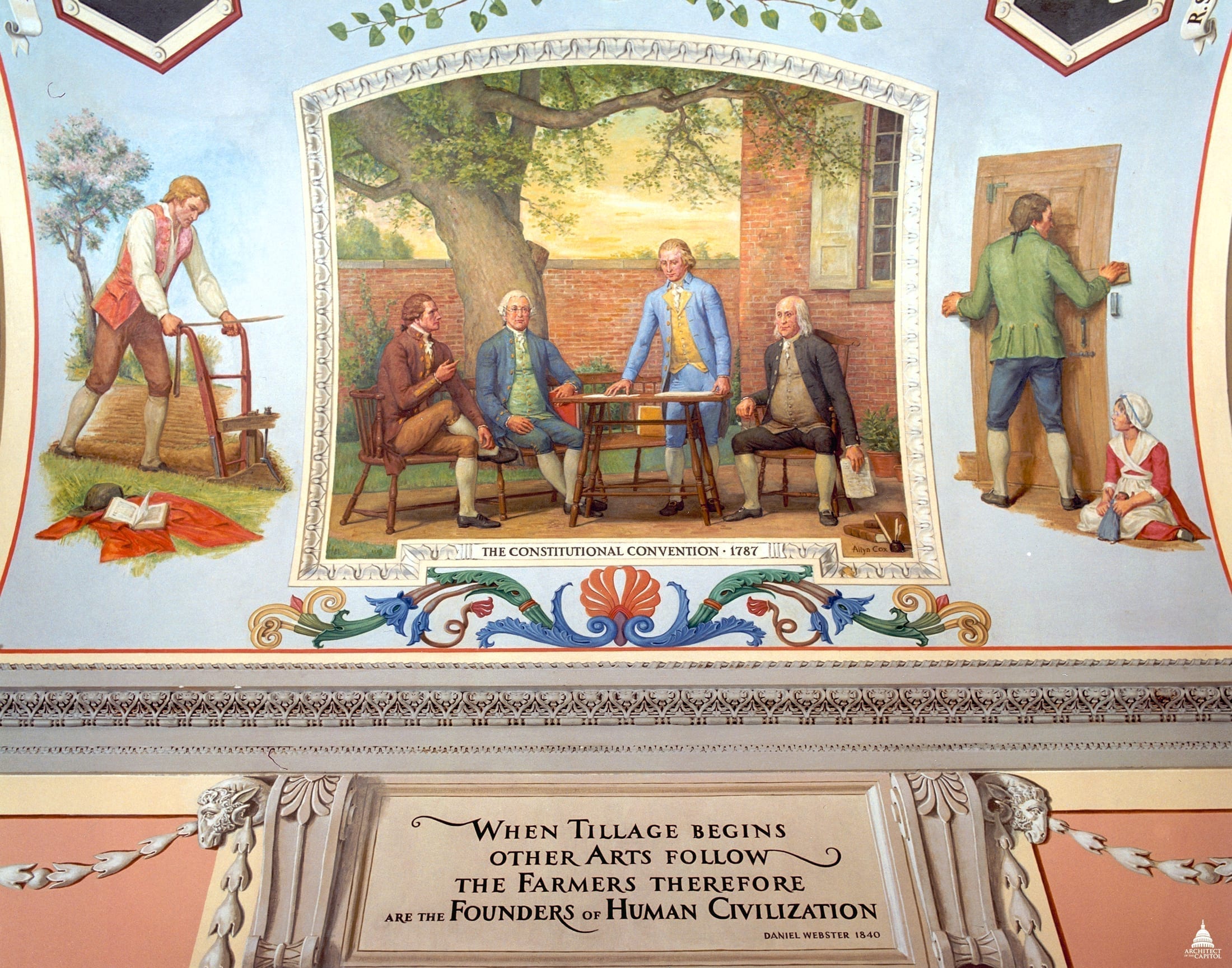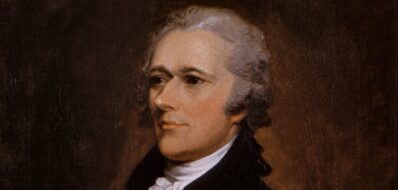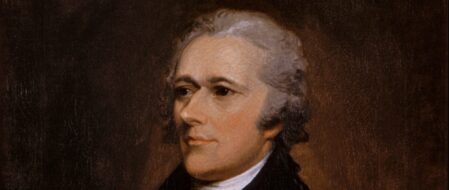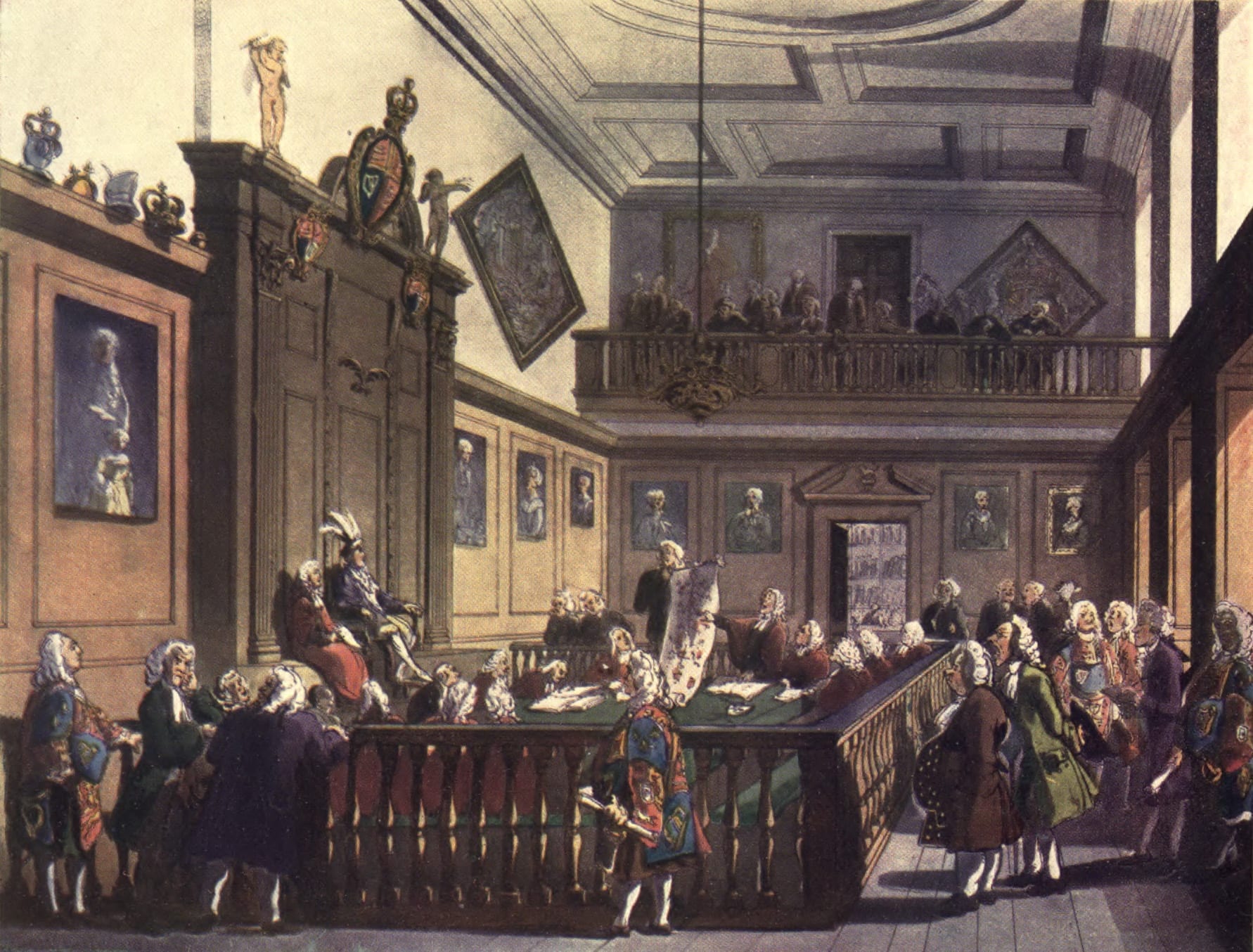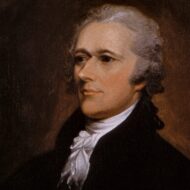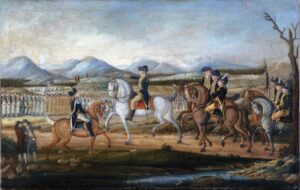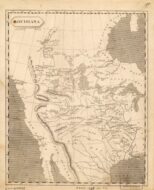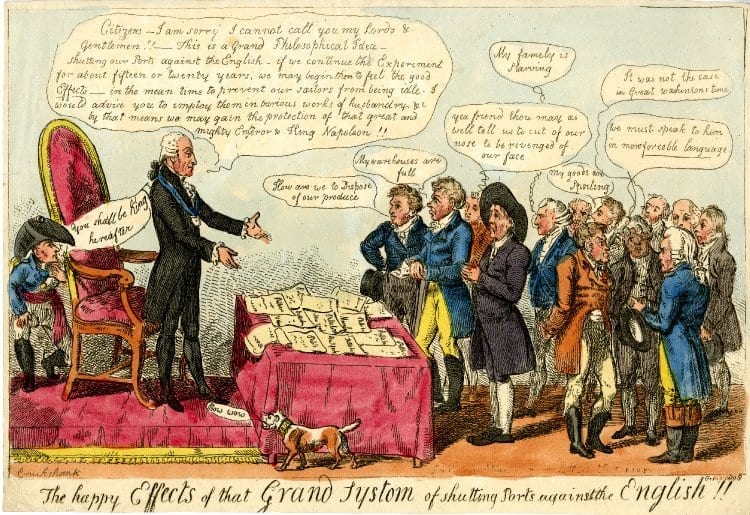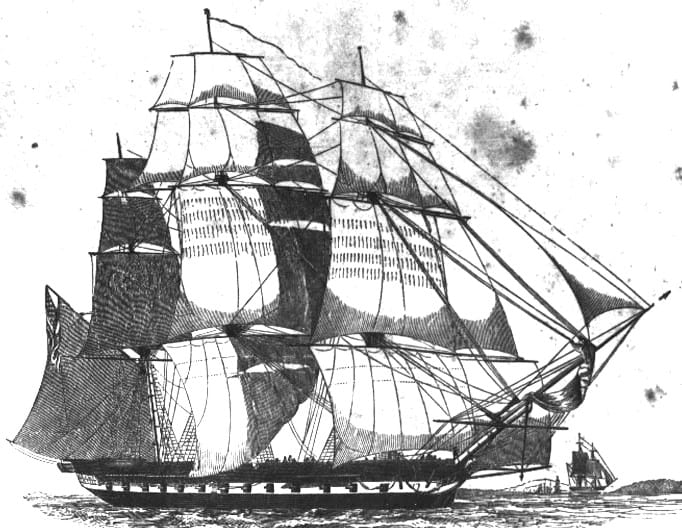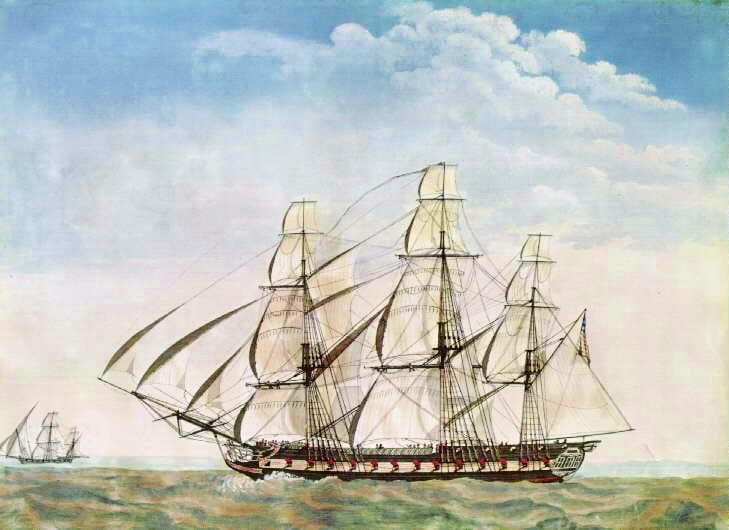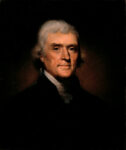


Introduction
The French Revolution (1789–1799) was a highly controversial subject in American politics during the 1790s. As France became embroiled in war with nearly every major European power, America (ostensibly her ally) had to decide whether to become involved in the conflicts. One segment of the population was sympathetic to the revolution, seeing it as an extension of the American Revolution. In contrast, the other segment favored neutrality, viewing the French Revolution as an example of democracy’s excesses, and citing the brutality of the revolution as evidence. This issue was complicated by a treaty between France and America that led to French assistance in the American Revolutionary War. Many argued that the treaty, as well as gratitude for assistance in America’s own revolution, obligated America to come to France’s aid in its European wars. In this document, Alexander Hamilton, the first secretary of the treasury and President George Washington’s close advisor, defends the administration’s “Proclamation of Neutrality” issued in April 1793. His defense of the Proclamation of Neutrality raises questions about which branch of government is in charge of the powers to declare war and peace.
Source: Pacificus No. 1, in The Pacificus-Helvidius Debates of 1793–1794, ed. Morton J. Frisch (Indianapolis: Liberty Fund, Inc., 2007), pp. 8–18.
As attempts are making very dangerous to the peace, and it is to be feared not very friendly to the constitution of the United States—it becomes the duty of those who wish well to both to endeavor to prevent their success.
The objections which have been raised against the Proclamation of Neutrality lately issued by the president have been urged in a spirit of acrimony and invective, which demonstrates, that more was in view than merely a free discussion of an important public measure. . . .
The objections in question fall under three heads—
- That the proclamation was without authority
- That it was contrary to our treaties with France
- That it was contrary to the gratitude, which is due from this to that country; for the succors rendered us in our own Revolution.
- That it was out of time & unnecessary.
In order to judge of the solidity of the first of these objection[s], it is necessary to examine what is the nature and design of a proclamation of neutrality.
The true nature ns design of such an act is—to make known to the powers at war and to the citizens of the country, whose government does the act that such country is in the condition of a nation at peace with the belligerent parties, and under no obligations of treaty, to become an associate in the war with either of them; that this being its situation its intention is to observe a conduct conformable with it and to perform towards each the duties of neutrality; and as a consequence of this state of things, to give warning to all within its jurisdiction to abstain from acts that shall contravene those duties, under the penalties which the laws of the land (of which the law of nations is a part) annexes to acts of contravention.
This, and no more, is conceived to be the true import of a Proclamation of Neutrality.
It does not imply, that the nation which makes the declaration will forbear to perform to any of the warring powers any stipulations in treaties which can be performed without rendering it an associate or party in the war. . . .
If this be a just view of the true force and import of the proclamation, it will remain to see whether the President in issuing it acted within his proper sphere, or stepped beyond the bounds of his constitutional authority and duty.
It will not be disputed that the management of the affairs of this country with foreign nations is confided to the government of the United States.
It can as little be disputed, that a Proclamation of Neutrality, where a nation is at liberty to keep out of a war in which other nations are engaged and means so to do, is a usual and a proper measure. Its main object and effect are to prevent the nation being immediately responsible for acts done by its citizens, without the privity or connivance of the government, in contravention of the principles of neutrality.
An object this of the greatest importance to a country whose true interest lies in the preservation of peace.
The inquiry then is—what department of the government of the United States is the proper one to make a declaration of neutrality in the cases in which the engagements of the nation permit and its interests require such a declaration.
A correct and well informed mind will discern at once that it can belong neither to the Legislative nor Judicial Department and of course must belong to the Executive.
The Legislative Department is not the organ of intercourse between the United States and foreign nations. It is charged neither with making nor interpreting treaties. It is therefore not naturally that organ of the government which is to pronounce the existing condition of the nation, with regard to foreign powers, or to admonish the citizens of their obligations and duties as founded upon that condition of things. Still less is it charged with enforcing the execution and observance of these obligations and those duties.
It is equally obvious that the act in question is foreign to the Judiciary Department of the government. The province of that department is to decide litigations in particular cases. It is indeed charged with the interpretation of treaties; but it exercises this function only in the litigated cases; that is where contending parties bring before it a specific controversy. It has no concern with pronouncing upon the external political relations of treaties between government and government. This position is too plain to need being insisted upon.
It must then of necessity belong to the Executive Department to exercise the function in question—when a proper case for the exercise of it occurs.
It appears to be connected with that department in various capacities, as the organ of intercourse between the nation and foreign nations—as the interpreter of the national treaties in those cases in which the Judiciary is not competent, that is in the cases between government and government—as that power, which is charged with the execution of laws, of which treaties form a part—as that power which is charged with the command and application of the public force.
This view of the subject is so natural and obvious—so analogous to general theory and practice—that no doubt can be entertained of its justness, unless such doubt can be deduced from particular provisions of the Constitution of the United States.
Let us see then if cause for such doubt is to be found in that Constitution.
The second Article of the Constitution of the United States, section 1st, establishes this general proposition, that “The Executive Power shall be vested in a President of the United States of America.”
The same article in a succeeding section proceeds to designate particular cases of Executive Power. It declares among other things that the president shall be commander in chief of the army and navy of the United States and of the militia of the several states when called into the actual service of the United States, that he shall have power by and with the advice of the senate to make treaties; that it shall be his duty to receive ambassadors and other public ministers and to take care that the laws be faithfully executed.
It would not consist with the rules of sound construction to consider this enumeration of particular authorities as derogating from the more comprehensive grant contained in the general clause, further than as it may be coupled with express restrictions or qualifications; as in regard to the cooperation of the Senate in the appointment of officers and the making of treaties; which are qualifications of the general executive powers of appointing officers and making treaties: Because the difficulty of a complete and perfect specification of all the cases of Executive authority would naturally dictate the use of general terms—and would render it improbable that a specification of certain particulars was designed as a substitute for those terms, when antecedently used. . . . The different mode of expression employed in the constitution in regard to the two powers the Legislative and the Executive serves to confirm this inference. In the article which grants the legislative powers of the government the expressions are—“All Legislative powers herein granted shall be vested in a Congress of the United States”; in that which grants the Executive Power the expressions are, as already quoted “The Executive Power shall be vested in a President of the United States of America.”
The enumeration ought rather therefore to be considered as intended by way of greater caution, to specify and regulate the principal articles implied in the definition of Executive Power; leaving the rest to flow from the general grant of that power, interpreted in conformity to other parts of the constitution and to the principles of free government.
The general doctrine then of our Constitution is, that the Executive Power of the nation is vested in the president; subject only to the exceptions and qualifications which are expressed in the instrument.
. . .
It may be observed that this Inference would be just if the power of declaring war had not been vested in the Legislature, but that this power naturally includes the right of judging whether the nation is under obligations to make war or not.
The answer to this is, that however true it may be, that the right of the Legislature to declare war includes the right of judging whether the nation be under obligations to make war or not—it will not follow that the Executive is in any case excluded from a similar right of judgment, in the execution of its own functions.
If the Legislature have a right to make war on the one hand—it is on the other the duty of the Executive to preserve peace till war is declared; and in fulfilling that duty, it must necessarily possess a right of judging what is the nature of the obligations which the treaties of the country impose on the government; and when in pursuance of this right it has concluded that there is nothing in them inconsistent with a state of neutrality, it becomes both its province and its duty to enforce the laws incident to that state of the nation. The Executive is charged with the execution of all laws, the laws of nations as well as the municipal law, which recognizes and adopts those laws. It is consequently bound, by faithfully executing the laws of neutrality, when that is the state of the nation, to avoid giving a cause of war to foreign powers.
This is the direct and proper end of the proclamation of neutrality. It declares to the United States their situation with regard to the powers at war and makes known to the community that the laws incident to that situation will be enforced. In doing this, it conforms to an established usage of nations, the operation of which as before remarked is to obviate a responsibility on the part of the whole society, for secret and unknown violations of the rights of any of the warring parties by its citizens.
. . .
The right of the Executive to receive ambassadors and other public ministers may serve to illustrate the relative duties of the Executive and Legislative Departments. This right includes that of judging, in the case of a revolution of government in a foreign country, whether the new rulers are competent organs of the national will and ought to be recognized or not: And where a treaty antecedently exists between the United States and such nation that right involves the power of giving operation or not to such treaty. For until the new government is acknowledged, the treaties between the nations, as far at least as regards public rights, are of course suspended.
This power of determining virtually in the case supposed upon the operation of national treaties as a consequence, of the power to receive ambassadors and other public ministers, is an important instance of the right of the Executive to decide the obligations of the Nation with regard to foreign nations. To apply it to the case of France, if there had been a treaty of alliance offensive and defensive between the United States and that country, the unqualified acknowledgment of the new government would have put the United States in a condition to become an associate in the war in which France was engaged—and would have laid the Legislature under an obligation, if required, and there was otherwise no valid excuse, of exercising its power of declaring war. . . .
This serves as an example of the right of the Executive, in certain cases, to determine the condition of the nation, though it may consequentially affect the proper or improper exercise of the power of the Legislature to declare war. The Executive indeed cannot control the exercise of that power—further than by the exercise of its general right of objecting to all acts of the Legislature; liable to being overruled by two thirds of both houses of Congress. The Legislature is free to perform its own duties according to its own sense of them—though the Executive in the exercise of its constitutional powers, may establish an antecedent state of things which ought to weigh in the legislative decisions. From the division of the Executive Power there results, in reference to it, a concurrent authority, in the distributed cases.
. . .
While therefore the Legislature can alone declare war, can alone actually transfer the nation from a state of peace to a state of war—it belongs to the “Executive Power,” to do whatever else the laws of nations cooperating with the treaties of the country enjoin, in the intercourse of the United States with foreign Powers.
In this distribution of powers the wisdom of our constitution is manifested. It is the province and duty of the Executive to preserve to the nation the blessings of peace. The Legislature alone can interrupt those blessings, by placing the nation in a state of war.
. . .
The proclamation has been represented as enacting some new law. This is a view of it entirely erroneous. It only proclaims a fact with regard to the existing state of the nation, informs the citizens of what the laws previously established require of them in that state, and warns them that these laws will be put in execution against the infractors of them.
The Pacificus-Helvidius Debates
September 14, 1797
Conversation-based seminars for collegial PD, one-day and multi-day seminars, graduate credit seminars (MA degree), online and in-person.






